
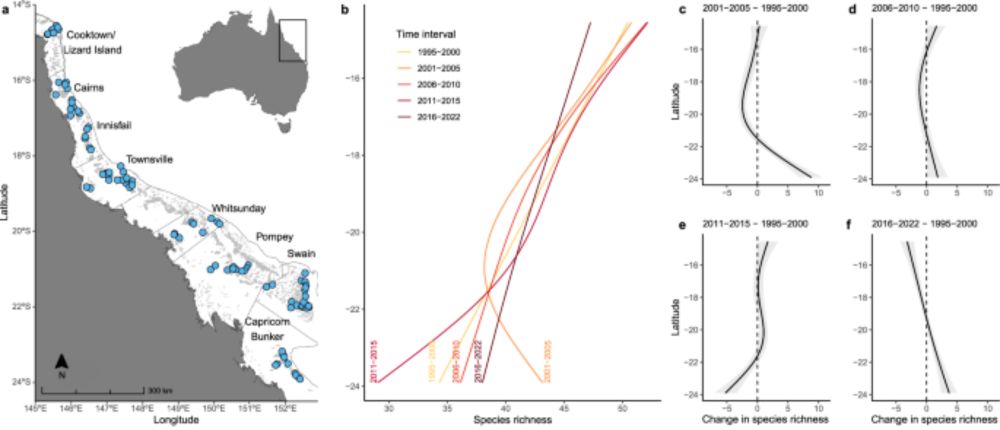
We found that changes in latitudinal diversity gradient & rising species turnover were strongly correlated with shifts in coral composition
Out now in Nature Comms www.nature.com/articles/s41...
Please follow bsky.app/profile/keel... for updates and share
Don't let science be hidden
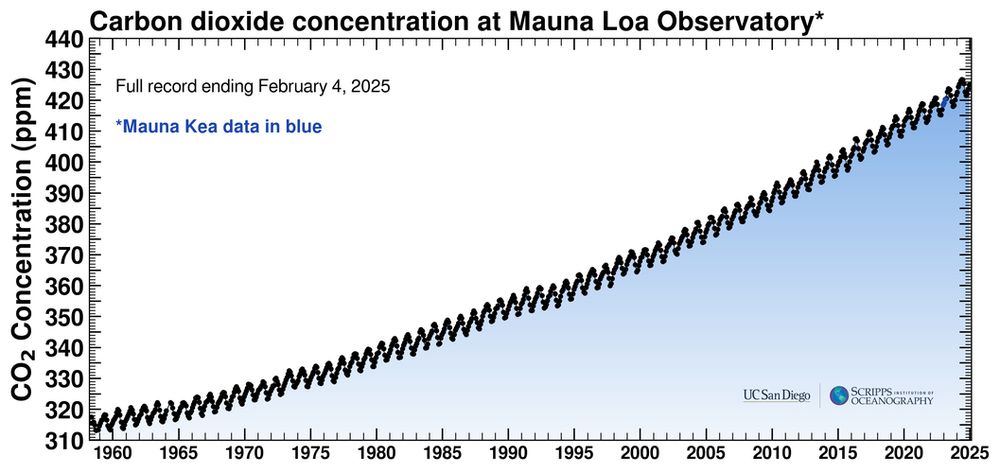
Please follow bsky.app/profile/keel... for updates and share
Don't let science be hidden

2 year post-doc position based at research-intensive @lancasteruni.bsky.social, and part of the fantastic @lec-reefs.bsky.social team
Apply: hr-jobs.lancs.ac.uk/Vacancy.aspx...
#AcademicSky 🦑 🧪 🌊 🌍
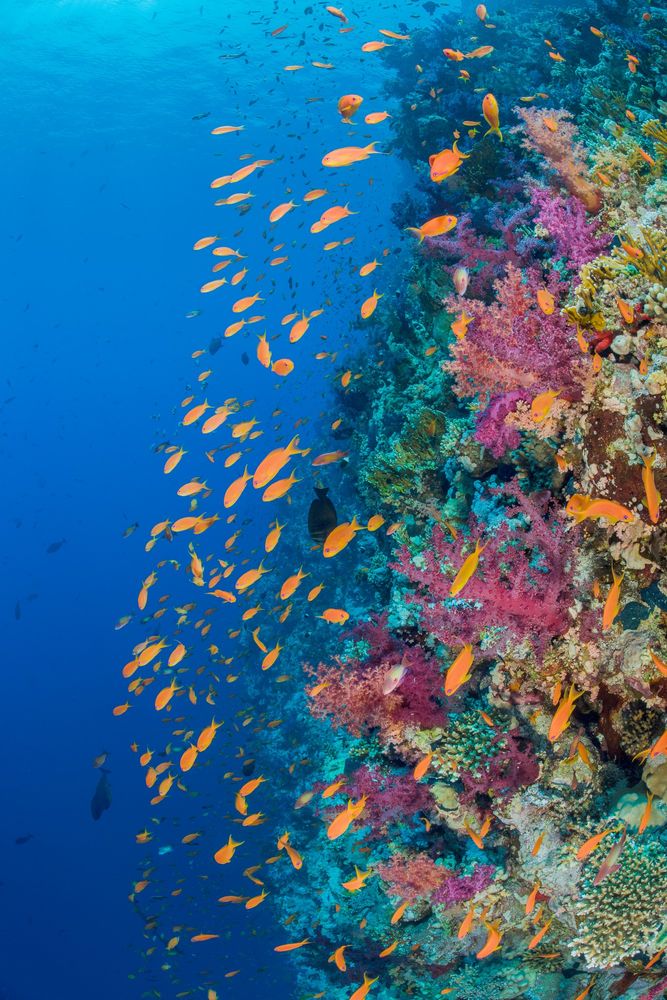
2 year post-doc position based at research-intensive @lancasteruni.bsky.social, and part of the fantastic @lec-reefs.bsky.social team
Apply: hr-jobs.lancs.ac.uk/Vacancy.aspx...
#AcademicSky 🦑 🧪 🌊 🌍
There is more and more evidence that the rate of global warming has doubled since 2010!
Visualization by the great Makiko Sato:

There is more and more evidence that the rate of global warming has doubled since 2010!
Visualization by the great Makiko Sato:


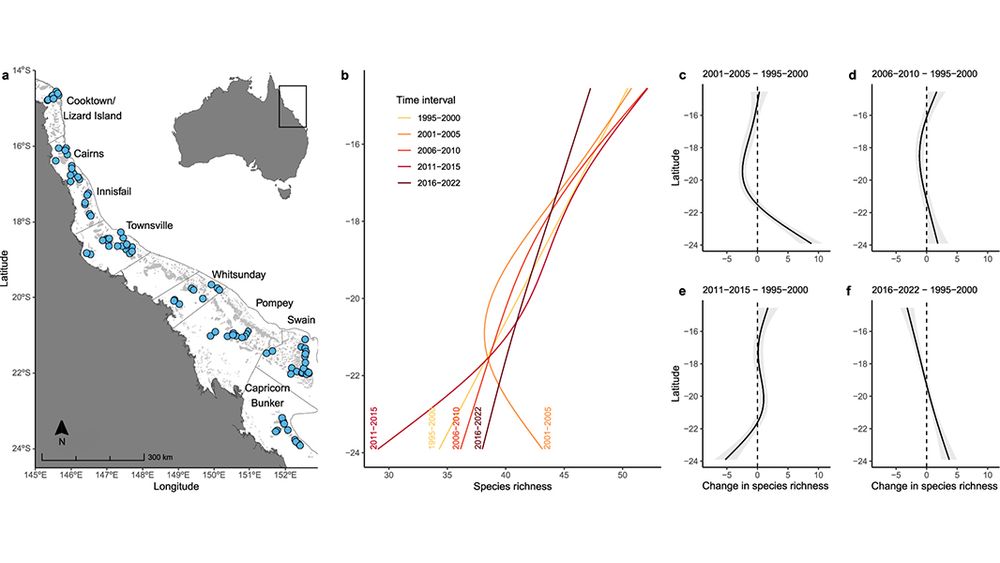

We found that changes in latitudinal diversity gradient & rising species turnover were strongly correlated with shifts in coral composition
Out now in Nature Comms www.nature.com/articles/s41...

We found that changes in latitudinal diversity gradient & rising species turnover were strongly correlated with shifts in coral composition
Out now in Nature Comms www.nature.com/articles/s41...
#GreatBarrierReef #FishDiversity #ClimateChangeImpact #CoralBleaching #EarthDotCom #Earth

#GreatBarrierReef #FishDiversity #ClimateChangeImpact #CoralBleaching #EarthDotCom #Earth
🎣 Global small-scale fisheries www.nature.com/articles/s41...
🪸 Diversity shifts on Great Barrier Reef www.nature.com/articles/s41...
💎 Artisanal mining impacts doi.org/10.1016/j.ex...
🏝️ Reef indicators for island restoration doi.org/10.1016/j.ec...
🎣 Global small-scale fisheries www.nature.com/articles/s41...
🪸 Diversity shifts on Great Barrier Reef www.nature.com/articles/s41...
💎 Artisanal mining impacts doi.org/10.1016/j.ex...
🏝️ Reef indicators for island restoration doi.org/10.1016/j.ec...
www.earth.com/news/fish-di...

www.earth.com/news/fish-di...
Un nou estudi revela que les comunitats de peixos de la Gran Barrera de Corall avui són substancialment diferents de les dels anys 90. 🌊🐠

Un nou estudi revela que les comunitats de peixos de la Gran Barrera de Corall avui són substancialment diferents de les dels anys 90. 🌊🐠
"Life in the '90s: Barrier Reef biodiversity has 'shifted significantly'"
oceanographicmagazine.com/news/life-in...

"Life in the '90s: Barrier Reef biodiversity has 'shifted significantly'"
oceanographicmagazine.com/news/life-in...
AIMS: Great Barrier Reef fish evidence suggests shifts in major global biodiversity patterns
www.aims.gov.au/information-...
AIMS: Great Barrier Reef fish evidence suggests shifts in major global biodiversity patterns
www.aims.gov.au/information-...
www.lancaster.ac.uk/news/great-b...
#coralreefs #coralreefdiversity #greatbarrierreef #coralscience #research #coralresearch #reeffish #coralreefecology #marinescience #marinebiology

www.lancaster.ac.uk/news/great-b...
#coralreefs #coralreefdiversity #greatbarrierreef #coralscience #research #coralresearch #reeffish #coralreefecology #marinescience #marinebiology

Reef fish communities are undergoing substantial change on the Great Barrier Reef, with latitude and through time. Changing coral composition, not simply coral cover, a major driver. @lec-reefs.bsky.social
www.nature.com/articles/s41...
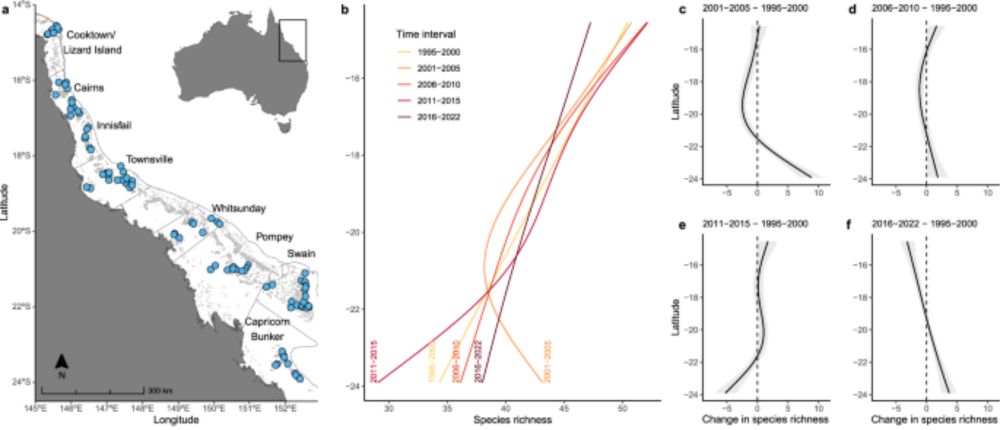
Reef fish communities are undergoing substantial change on the Great Barrier Reef, with latitude and through time. Changing coral composition, not simply coral cover, a major driver. @lec-reefs.bsky.social
www.nature.com/articles/s41...
We found that changes in latitudinal diversity gradient & rising species turnover were strongly correlated with shifts in coral composition
Out now in Nature Comms www.nature.com/articles/s41...

We found that changes in latitudinal diversity gradient & rising species turnover were strongly correlated with shifts in coral composition
Out now in Nature Comms www.nature.com/articles/s41...
Read the full Global Climate Highlights 2024 here: https://bit.ly/40kQpcz#C3S##GCH20242024
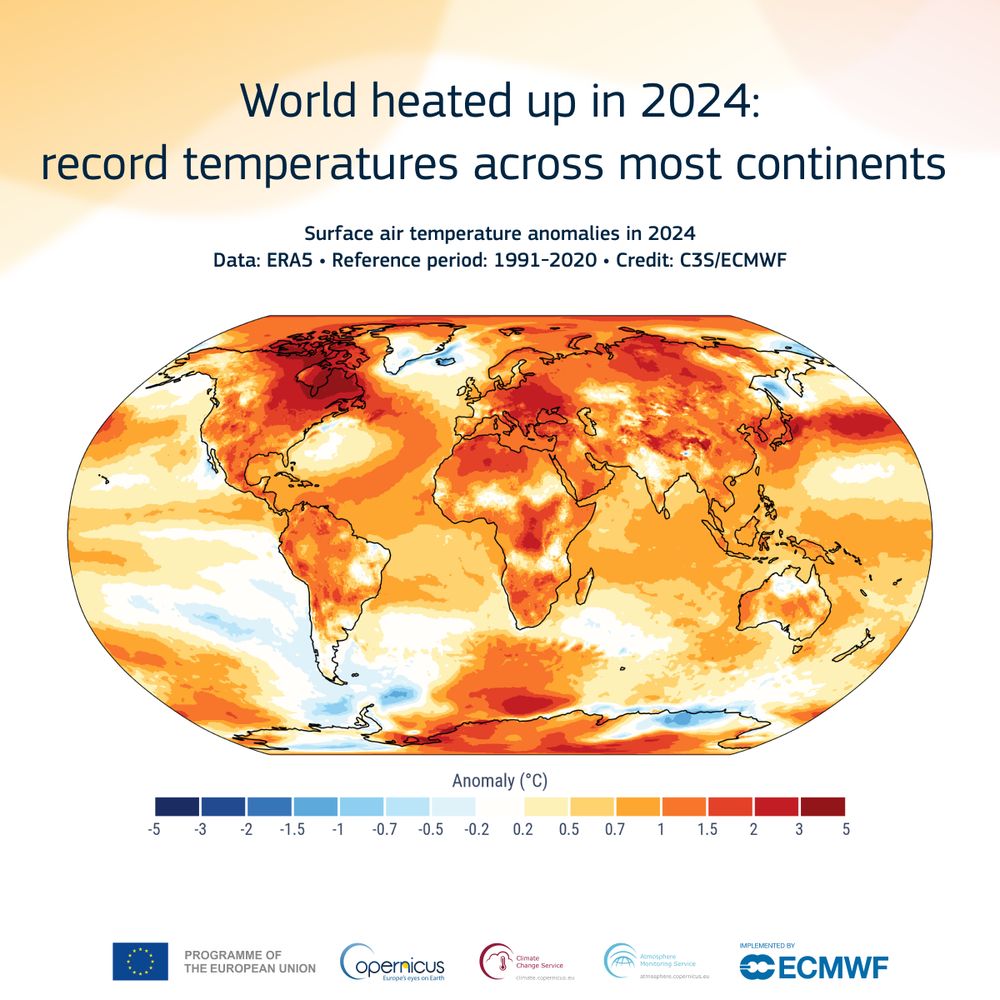
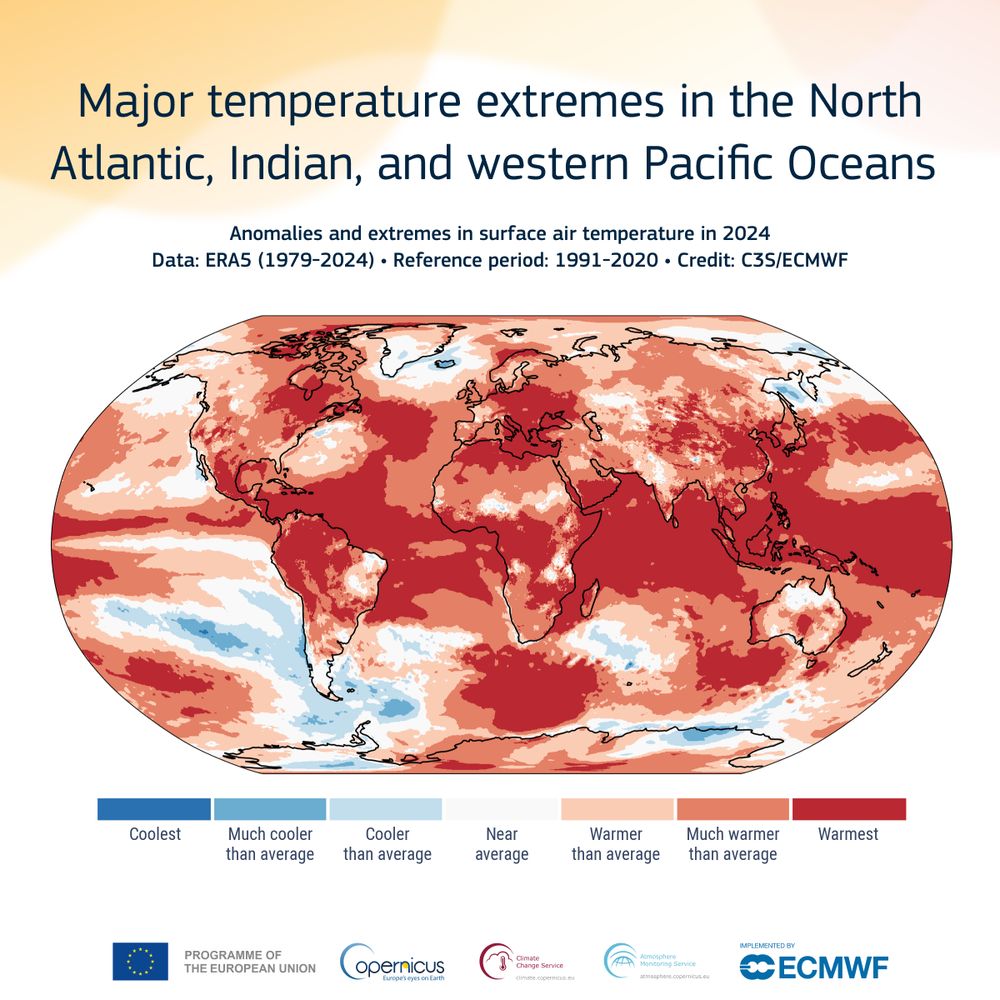
Read the full Global Climate Highlights 2024 here: https://bit.ly/40kQpcz#C3S##GCH20242024
We compare indicators for monitoring the impacts of island restoration on coral reefs. Massive thanks to our huge list of collaborators, which enabled us to look at seabirds, nutrients, microbes, algae, corals, and fish! 🐦🦠🌱🪸🐠
www.sciencedirect.com/science/arti...
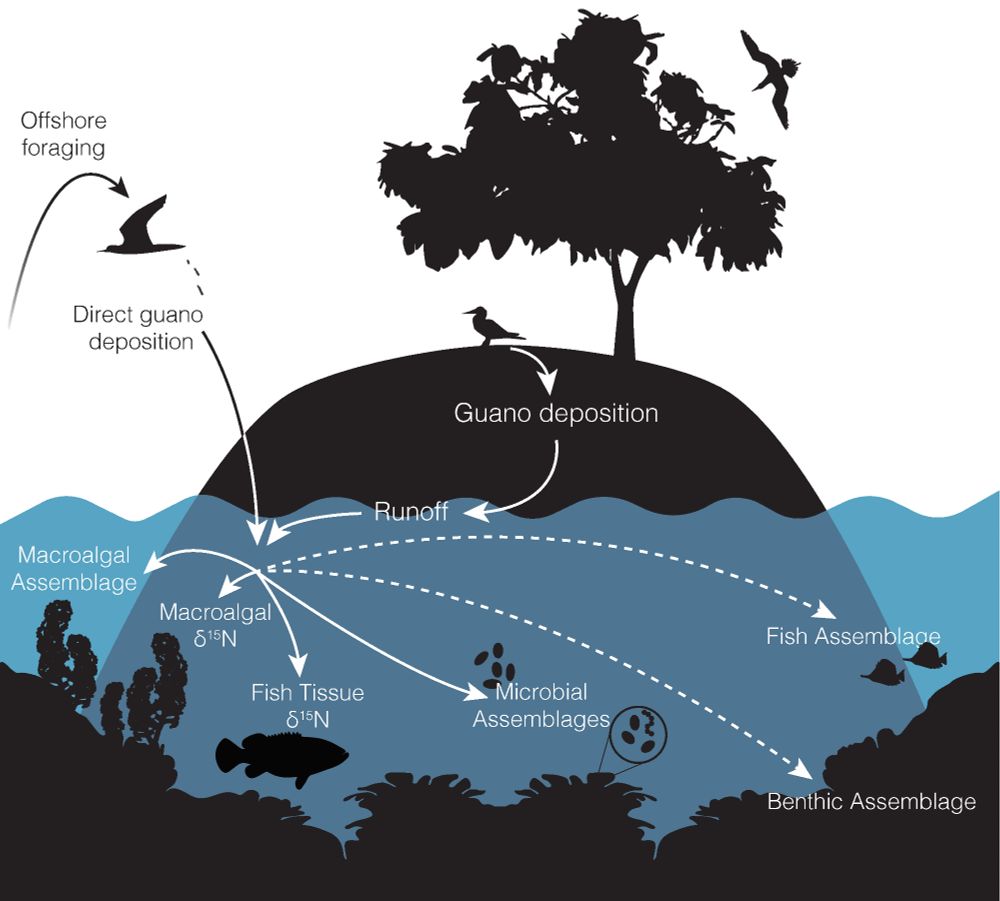
We compare indicators for monitoring the impacts of island restoration on coral reefs. Massive thanks to our huge list of collaborators, which enabled us to look at seabirds, nutrients, microbes, algae, corals, and fish! 🐦🦠🌱🪸🐠
www.sciencedirect.com/science/arti...
onlinelibrary.wiley.com/doi/10.1111/...
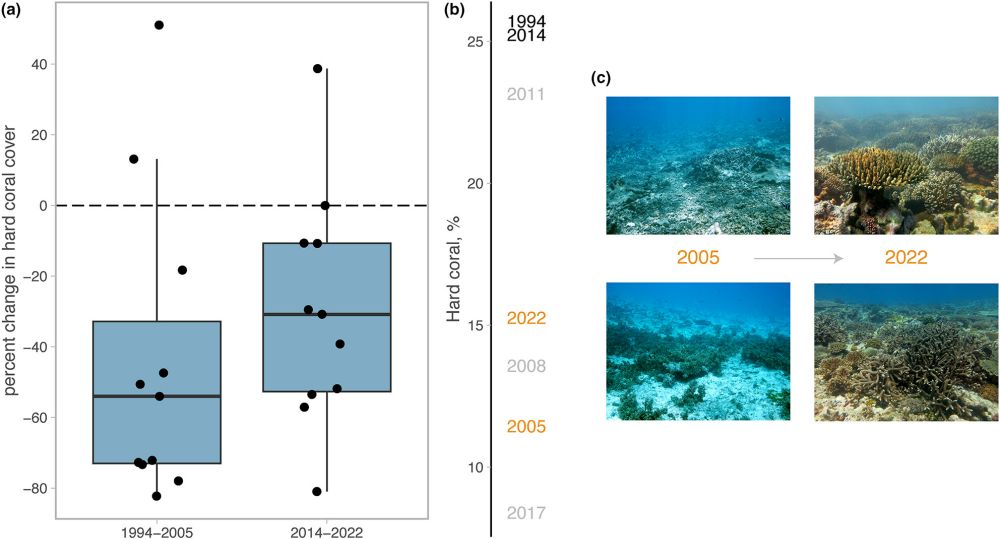
onlinelibrary.wiley.com/doi/10.1111/...

Let's grow this community!

Let's grow this community!

